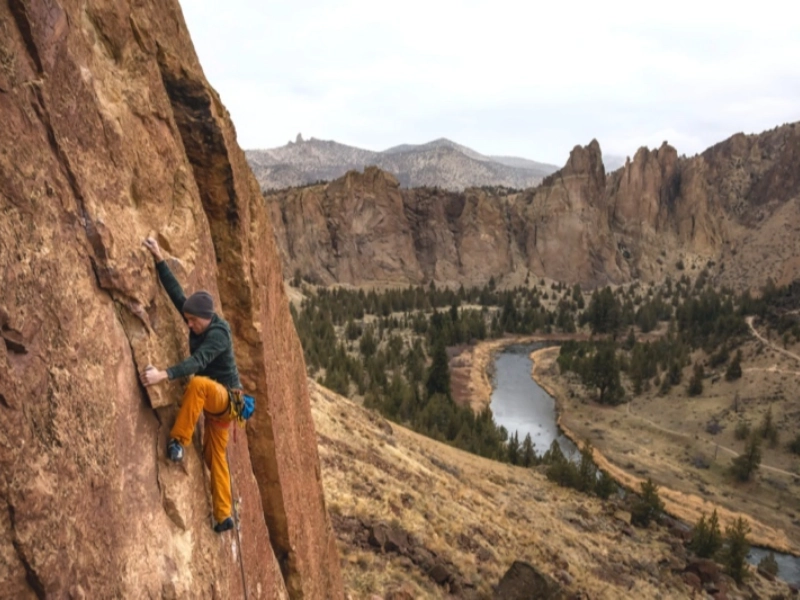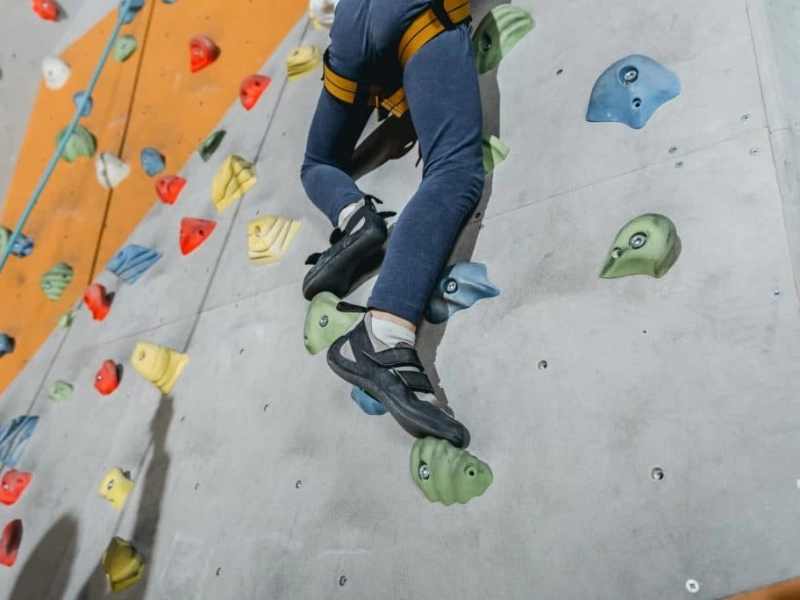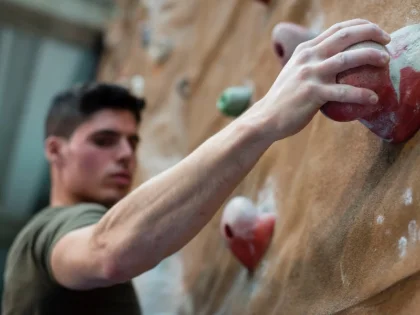How Many Times a Week Should I Climb to Get Better?
Building endurance and strength can be achieved by engaging in climbing twice a week. But taking days off is crucial to preventing injury and burnout. Adjust the intensity of your sessions to get the best results. Using "climbing intervals" is one approach; these involve switching between quick rest intervals and vigorous climbs. Supplemental strength training of the antagonist muscles supporting the fingers and forearms is beneficial for climbers as well. This keeps you from overtraining and helps you retain equilibrium.
Climbing at least once a week

Climbing twice a week
 Regular training is crucial if you want to increase your climbing skills. Climbing too frequently in a week will cause your muscles to become overused, so avoid doing so. Try to arrange your training sessions on different days to prevent this. Aside from that, remember to consume plenty of water and protein after your workouts.
Because their bodies are still getting used to the demands of climbing, beginners should only go climbing once a week. But if they have a plan in place, they can only rise steadily once a week.
Each climbing session will have a different level of effort depending on its objectives, such as improving technique or developing power. A session emphasizing footwork, for instance, will be less strenuous than one focusing on finger strength. It's also critical to realize that you will require a lot more recovery if you push yourself during endurance training to the point of failure as opposed to climbing slightly below your limit.
Regular training is crucial if you want to increase your climbing skills. Climbing too frequently in a week will cause your muscles to become overused, so avoid doing so. Try to arrange your training sessions on different days to prevent this. Aside from that, remember to consume plenty of water and protein after your workouts.
Because their bodies are still getting used to the demands of climbing, beginners should only go climbing once a week. But if they have a plan in place, they can only rise steadily once a week.
Each climbing session will have a different level of effort depending on its objectives, such as improving technique or developing power. A session emphasizing footwork, for instance, will be less strenuous than one focusing on finger strength. It's also critical to realize that you will require a lot more recovery if you push yourself during endurance training to the point of failure as opposed to climbing slightly below your limit.
Climbing three times a week
 For novice climbers, the best method to get better may be to climb three times a week. They can exercise their bodies according to this timetable without overdoing it and risking injury. Additionally, it allows them to relax in between sessions. To prevent injuries, beginners should concentrate on doing proper warm-ups and cool-downs.
Additionally, novices must exercise caution to avoid climbing too frequently in succession. This may cause muscular atrophy and lessen the benefits of training. Supplemental strength training, such as push movements like bench presses and pull-ups, is also an excellent idea. They will have more power overall and stronger fingers as a result of this.
Tendon injuries can result from overusing a particular muscle for an extended period of time. These are very painful injuries that have the potential to reverse climbing achievements. Climbing may be kept enjoyable and tendon injuries can be prevented by using a range of tactics to adjust the intensity of each session.
For novice climbers, the best method to get better may be to climb three times a week. They can exercise their bodies according to this timetable without overdoing it and risking injury. Additionally, it allows them to relax in between sessions. To prevent injuries, beginners should concentrate on doing proper warm-ups and cool-downs.
Additionally, novices must exercise caution to avoid climbing too frequently in succession. This may cause muscular atrophy and lessen the benefits of training. Supplemental strength training, such as push movements like bench presses and pull-ups, is also an excellent idea. They will have more power overall and stronger fingers as a result of this.
Tendon injuries can result from overusing a particular muscle for an extended period of time. These are very painful injuries that have the potential to reverse climbing achievements. Climbing may be kept enjoyable and tendon injuries can be prevented by using a range of tactics to adjust the intensity of each session.
Climbing four times a week
 You have to visit the wall frequently if you want to become an excellent climber. Making the most of your climbing time may prove difficult if you have a hectic schedule. Weekly session goals that are specific are an effective strategy to achieve this. This could be an emphasis on dynamic movements, endurance, or technique. You'll train more effectively and make the most of every training session if you do this.
It's also crucial to stop climbing frequently throughout your exercises. Your body will recuperate more slowly and you'll be able to work out harder. Many climbers will even take a break from climbing to work on their abs or perform pushups or other high-intensity activities.
Don't overtrain, though, as this might result in ailments like shoulder and finger tendinitis. This is frequently the outcome of excessive repetition without enough recuperation. It's also frequently the cause of some novice climbers' difficulties advancing.
You have to visit the wall frequently if you want to become an excellent climber. Making the most of your climbing time may prove difficult if you have a hectic schedule. Weekly session goals that are specific are an effective strategy to achieve this. This could be an emphasis on dynamic movements, endurance, or technique. You'll train more effectively and make the most of every training session if you do this.
It's also crucial to stop climbing frequently throughout your exercises. Your body will recuperate more slowly and you'll be able to work out harder. Many climbers will even take a break from climbing to work on their abs or perform pushups or other high-intensity activities.
Don't overtrain, though, as this might result in ailments like shoulder and finger tendinitis. This is frequently the outcome of excessive repetition without enough recuperation. It's also frequently the cause of some novice climbers' difficulties advancing.









